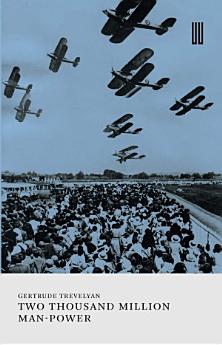Two Thousand Million Man-Power
About this ebook
Utterly forgotten for over 80 years, Gertrude Trevelyan is finally being rediscovered. The stylistic and imaginative daring of her fiction arguably makes her one of the finest English novelists of the generation that followed Virginia Woolf.
A panoramic view of English life from 1919 to 1936, Two Thousand Million Man-Power is no wistful, nostalgic account of this time. Instead, Gertrude Trevelyan shows how even the brightest and most able personalities can be ground down by economic highs and lows and a system in which individuals quickly disappear into crowds and statistics. One year, Robert and Katherine are enjoying the consumer comforts of a radio, a car, a house in the suburbs. The next, they are struggling to make ends meet in a tiny, squalid East End flat as Robert trudges hopelessly into London each day in hopes of finding work. The result is a savage portrait equalled only by George Orwell's The Road to Wigan Pier.
About the author
Gertrude Eileen Trevelyan was born in Bath in 1903. She came to fame as the first woman to win the Newdigate Prize for best undergraduate poem at Oxford in 1927. Starting with Appius and Virginia in 1932, she published eight novels, her last being Trance by Appointment in 1939. She was injured when a German bomb struck her flat in October 1940 and she died at her parents' home in Bath in March 1941.
Rachel Hore taught publishing and creative writing at the University of East Anglia before becoming a full-time writer. She is the author of twelve novels. The latest, One Moonlit Night, is set in Norfolk and France during the Second World War.
Brad Bigelow is the editor of NeglectedBooks.com and of the Recovered Books series from Boiler House Press.





